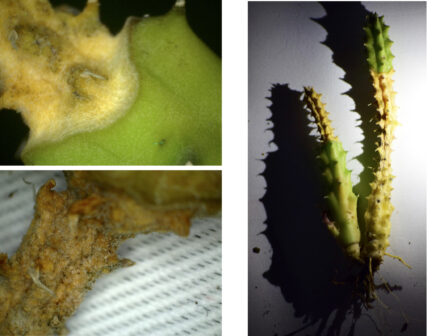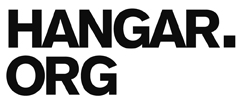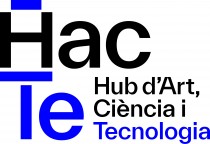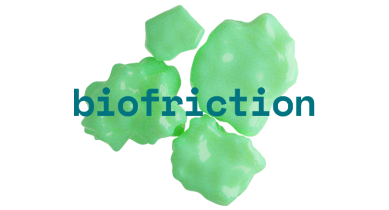Art and science in the time of a pandemic

Hangar co-organizes, together with the Universitat Oberta de Catalunya and Hac Te, the event Art and science in times of pandemic. The meeting, which will take place in Hangar’s Sala Ricson on April 27 at 7 p.m., will include the participation of several speakers and a performance by the artist Mayra Citlalli Rojo.
This dialogue is the first of a series of activities linked to the Hac Te project, promoted and hosted by its various partners, and aimed at disseminating, promoting and emphasizing the interrelations between different artistic, philosophical, scientific or technological communities. Aimed at both general and specialized audiences, this first event will share experiences and reflections on the practices of art and science in times of pandemic, a context of epidemiological crisis and at the same time of sovereignty that makes more visible than ever the uncertainty and systemic inequalities present in our societies. A space to share reflections and show art and science practices around these and other related issues, linked on the one hand to the European project Biofriction led by Hangar, and on the other hand to the monographic node 27 of the scientific journal Artnodes of the UOC. All this in the context of the actions that will allow the progressive deployment of the Hac Te project in the city of Barcelona.
Practical information
Date: April 27th
Time: 19 h
Limited places (40 pax). You can sign up through this form.
The event will be also available on streaming here.
Program
7 pm | Opening Welcome by Lluís Nacenta, director of Hangar
7 pm – 7:15 pm | Presentation of Hub Artech by Pau Alsina, Director of the Art, Science and Technology Program of Universitat Oberta de Catalunya
7:15 pm- 7:30 pm | Performance by artist Mayra Citlalli Rojo
7:30 pm- 8:30 pm | Round table Art and in the time of a pandemic. With Laura Benítez and Erich Berger. Moderated by Pau Alsina.
8:30 pm – 8:45 pm | Question and Answers
8:45 pm – 8:50 pm | Closing of the event
Speakers
Lluís Nacenta (Barcelona) is a professor, writer and curator in the fields of music and contemporary art. Degree in Mathematics and Music (piano), Master’s Degree in Comparative Studies in Literature, Art and Philosophy and Doctor of Humanities, with a PhD thesis about musical repetition, his research proposes a philosophical perspective on the sonic arts. He has published numerous articles in digital and paper publications, such as Cultura/s de La Vanguardia and Nativa, and has curated exhibitions and concerts for Sónar+D, Arts Santa Mònica, Centre de Cultura Contemporància de Barcelona (CCCB) and Fundació Antoni Tàpies, among others. Since January 2018 is the director of Hangar.
Mayra Citlalli Rojo (Mexico City) is a Mexican artist, researcher and interdisciplinary curator in visual arts and discourses of the body (gender and race), she researches in textile design and innovation. She has received honorable mentions for her master’s and doctoral dissertations. She developed a postdoctoral research on bacterial cellulose focused on textile and design. As an artist she was selected as the first female artist in residence at Air-Montreux, Switzerland (2019). Together with Mexican performer Victor Martinez she developed Laboratio of actions in public space (Berlin, 2019). She is currently developing the curatorial research Monsters: teratology of the feminine. She has been invited as a curator in the project Traslado a Santiago de Chile on the theme of collective curatorships and migration (2016). Her works include El monstruo como figura de una economía de la destrucción de la forma en el arte contemporáneo: Cabeça do avesso by Lia Menna Barreto.
Recent theoretical publications: El retorno del monstruo: el poder subversivo (Revista Exotopías, Mexico, 2019), Zombi, Zumbi, Zombie: El sonido de la multitud (Revista Utopia, Spain, 2019).
Erich Berger (Helsinki) is an artist, curator and cultural worker based in Helsinki, Finland. His work focuses on the intersection of art, science and technology with a critical eye on how they transform society and the world. Through his practice he has explored the materiality of information, and information and technology as artistic material.
His current interest in issues of deep time and hybrid ecology has allowed him to work with geological processes, radiogenic phenomena and their socio-political implications in the here and now. He moves between visual arts and science in an area in which he also researches and develops as director of the Bioart Society in Helsinki. His installations have been widely exhibited and Berger has received awards from renowned institutions such as Prix Ars Electronica (AT), ZKM (DE), Vida Telefonica (ES), Files Prix (BR) and Arts at CERN (CH).
Laura Benítez (Barcelona) is a PhD in Philosophy, researcher and independent curator. Her research connects philosophy, art(s) and technoscience. Currently her work revolves around the practices of bioart, biohacking, bio-resistance processes, civil biodesobediential and non-human agents. She is director of Theory and professor of Critical and Cultural Studies in the Degree of Arts and Design (Massana School), professor of Technology and Design in Elisava and collaborating professor in the Master of Philosophy for Contemporary Challenges, seminar of Robotics and Genetic Engineering (UOC). She has been a guest researcher at the Ars Electronica Center and the Center for Studies and Documentation of MACBA. She has also been invited in different international institutions such as Interface Cultures Kunstuniersität Linz, Sónar Festival (Bcn/Hong Kong), Royal Academy of Arts London or University of Puerto Rico. She currently collaborates in different research projects, both academic and autonomous, and is a regular contributor to Hangar. She directs Biofriction, a European project (Creative Europe) on bioart and biohacking practices, led by Hangar in collaboration with Bioart Society, Kersnikova and Cultivamos Cultura.
Pau Alsina (Barcelona) is coordinator of Hac Te. D. in Philosophy and director of the interdisciplinary research group in Arts, Technoscience and Society (DARTS). He is an associate professor of Arts and Humanities Studies at the Universitat Oberta de Catalunya (UOC) and of the Official Master in Digital Art Curatorship (ESDI). He is the author of several books, chapters and articles on the intersections between art, thought, science and technology. Since 2001 he has edited the academic journal Artnodes on artistic research linked to science and technology, and is co-founder of the international network YASMIN promoted by Leonardo / ISAST. He was recently appointed member of the Executive Committee of the Barcelona Culture Council. He has chaired conferences (Art Matters, Interface Politics), curated exhibitions and activities (Ars Electronica Garden, Cultures of Change, Sinergia), advised public (FECYT, Barcelona City Council) and private institutions (Fundación Carasso, BBVA, NAF) on the relationship between arts and sciences. He is currently preparing the Neo program at Cosmocaixa for 2021 and directs the International Symposium of Electronic Arts (ISEA) that will take place in Barcelona in 2022.
Anouchka Skoudy, PhD in Biology, she has been working in biomedical research for almost twenty years. She has led scientific projects related to cell and molecular biology, specifically in the area of embryonic stem cell differentiation and pancreatic cancer. Early she became interested in the procedures of scientific dissemination and gradually to the way art and science are linked. By deconstructing a classical academic pathway of learning, she explored this field sharing experiences with other people at several levels from the primary schools to artistic institutions. She paid particular attention to the different abilities and methods to proceed to the unknown and how the context influences this approach. Recently, she has collaborated with the European project Biofriction as a scientist advisor, assisting the artists both at the conceptual and practical levels. She has been a researcher at Hospital del Mar Medical Research Institute (IMIM), Barcelona Biomedical Research Park.
The event is part of the European project Biofriction and is supported by the Creative Europe program.
Image: Mayra Citlalli Rojo
Coorganized by:





Categories: Research and transfer of knowledges activities |
